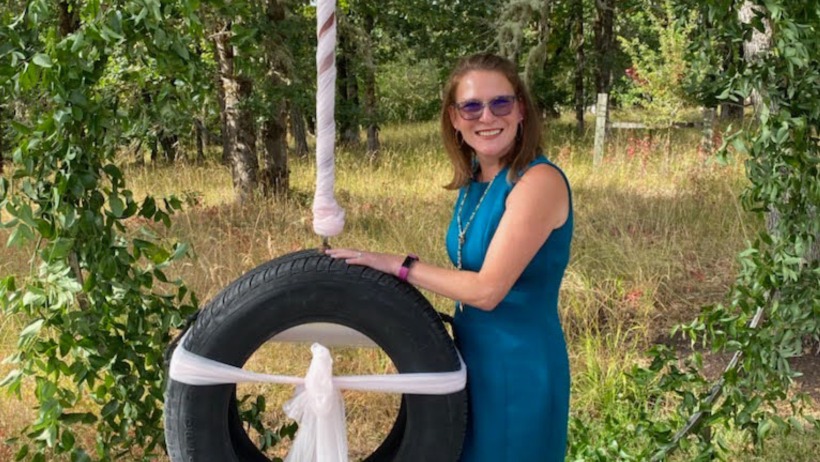More than once, I’ve found myself in a conversation where someone mentions a metaphorical social pendulum. Society swings alternately from one extreme to the other, so whenever we think things have reached an extreme point, we should remember that there will soon be a time when the pendulum swings back, and we moderate ourselves to a more middle stance. Does this sound at all familiar? While this is generally true with many trends and beliefs, that doesn’t necessarily make living through the extreme moments easier, when the world feels like it has a lot of black-and-white polar opposites and no room for gray.

The two Torah portions we read this week remind me of this swinging pendulum. This week we read a double parshah, Acharei Mot-Kedoshim. Parshat Acharei Mot deals with what happens after Aaron’s sons have offered up “strange fire” to God and with certain forbidden relationships between human beings. The structure of this section of text pushes us to look at our relationships with both God and others and see the boundaries and intimacies of each relationship. Parshat Kedoshim deals with what is known as the “Holiness Code” which helps us to understand how we can walk in God’s ways and create a community of relationship and understanding.
These two sections of text feel at times to be completely opposite to one another, like the two ends of a pendulum’s amplitude. Parshat Acharei Mot goes into an entire list of actions that are deemed to be abhorrent or an abomination. This list includes things like rape, incest, and bestiality, which are just as heinous today as they were then, but also homosexuality, which, to our modern sensibilities, obviously has no place on this list. The second text, Parshat Kedoshim, is a list of commandments for how we should honor, trust, lift up, and respect one another.
The way our actions are judged in the first, combined with the commandments not to judge in the second, feels like two extremes of that pendulum swing. In the middle is where we find the first verse of Parshat Kedoshim: “You should be holy, because I, the Lord, your God is holy.” This refrain is used again and again. What is holy? Acting with respect for human dignity and loving one another. What is also holy? Not causing undo harm, mental or physical, to other human beings. What else is holy? Lifting one another up in a way that gives each of us the freedom to be our best selves.
The pendulum swings, even in religious Jewish practice. It’s not just a literal interpretation of the text, it’s a metaphor for our lives as Conservative Jews. We read these portions through our lens of “tradition and change,” and while the text is our guide, this also means that reading a statement that calls an act of love an abomination, even during a time far removed from our own, requires of us a moment of teshuvah, of returning to that midpoint between the extremes. It’s our reminder that, no matter what, we are holy.



